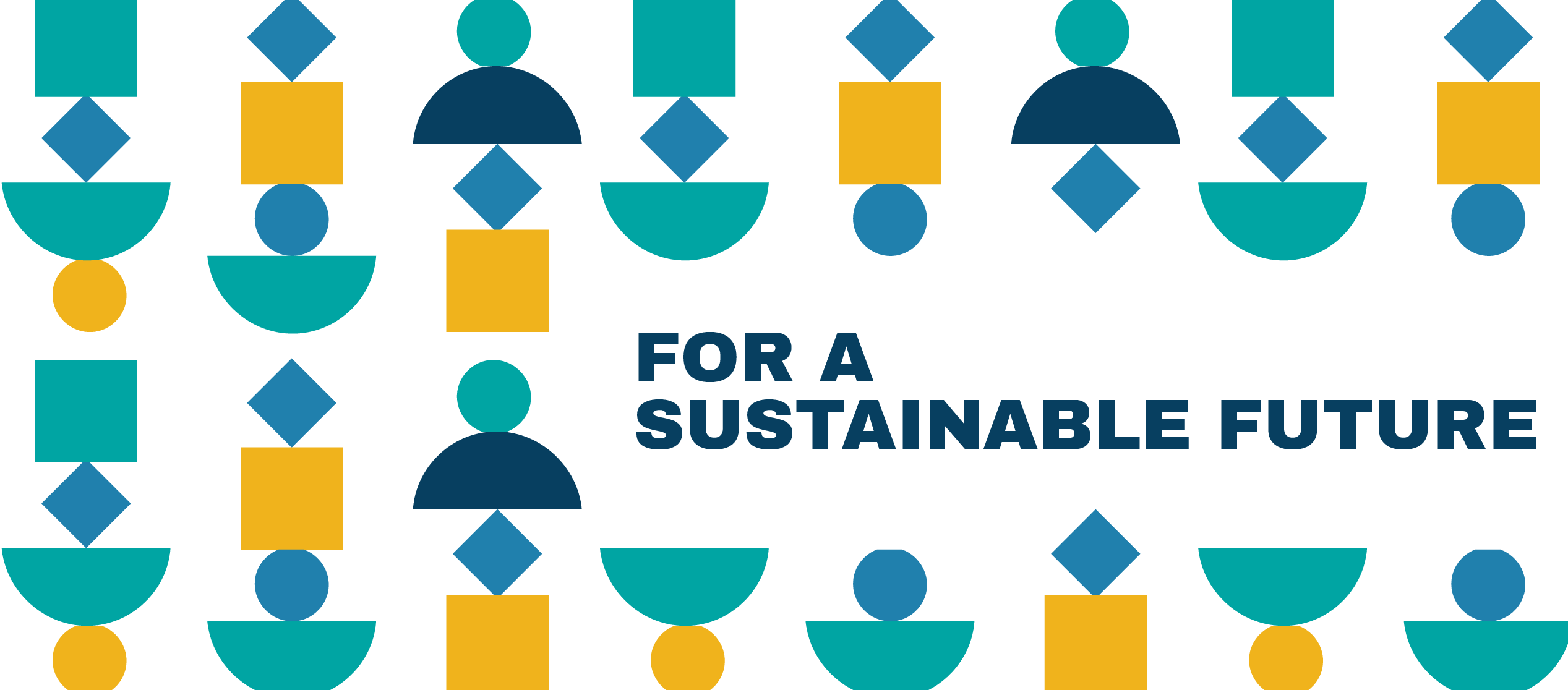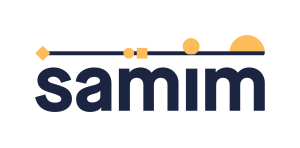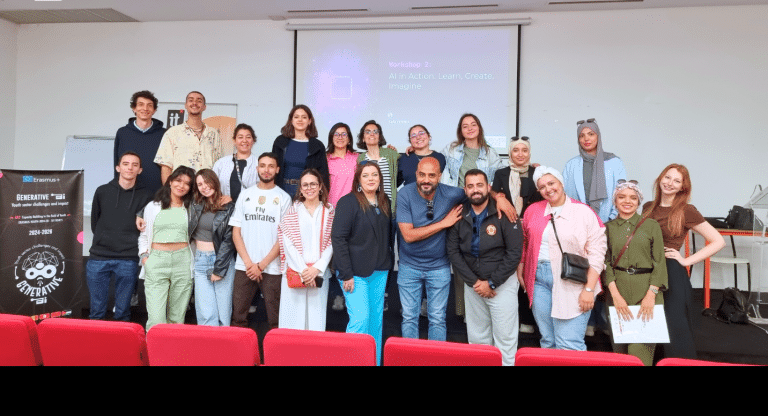



The Samim project is a Mediterranean project dedicated to supporting and reinforcing the capacity of civil society organizations (CSOs), financed by the Agence Française de Développement (AFD) and implemented by Lab’ess in partnership with PULSE and 4 Support Structures (SS) including Ecodev in Mauritania, Bidaya in Morocco, TCSE in Tunisia and JYIF in Jordan.
Initiated by the Forum of Mediterranean Worlds in February 2022It is, the Samim, for a sustainable future project was born in the philosophy of a need to support civil society and youth of the southern shore of the Mediterranean. The project is the continuation of the first pilot phase, Salam, Imagining and Building the Mediterranean of Tomorrow, which was supported by the Ministry of Europe and Foreign Affairs (MEAE) and conducted between 2021 and 2022.
The project aims to support and finance initiatives led by young actors of change. The initiatives will have to respond to the different challenges that cities have to face in order to be more accessible, livable, and resilient to climate change. In this sense, Samim plans to value the sustainable and local innovations of civil society to resolve these issues. At the same time, the project is perceived as an inclusive response to the needs of youth and women in the four cities. The selection process for the call for projects will therefore pay close attention to inclusive projects carried out by and for women and youth.
This call is supported by four support structures in the four countries of intervention of Samim:
1. In Mauritania: Ecodev – The School of Local Development
Ecodev is a Mauritanian NGO with expertise in managing development projects in partnership with local communities and civil society. Its intervention themes include support for youth dynamics and entrepreneurship in urban areas, promotion of renewable energy, and environmental preservation.
2. In Morocco: Bidaya
Bidaya promotes and supports actors of social and environmental change in Morocco and works for a more inclusive society. Specializing in startups and social, environmental, and technological innovation, Bidaya supports entrepreneurs in the development of their high-impact projects.
3. In Tunisia: TCSE – Tunisian Center for Social Entrepreneurship
The TCSE was created in 2012 with the vision of making social entrepreneurship a pillar of the Tunisian economy, by offering sustainable and innovative solutions to the economic and social problems that the Tunisian society faces.
4. In Jordan: JYIF – Jordan Youth Innovation Forum
JYIF is a Jordanian NGO founded in 2007. It works on youth empowerment to increase their active participation in the development process in order to build a community of capable and inspired young entrepreneurs.
Call For Applicants
This call for projects (c4P) will be carried out locally by the 4 support structures (SS) in the 4 countries of intervention. The C4P consists of supporting and financing CSOs led by young actors of change in the implementation of innovative projects to meet the challenges of cities (see below section 3. Project characteristics) During this C4P, information sessions, both face-to-face and online, will be organized by each SS in each of the 4 countries in order to present the Samim project, the selection criteria and answer questions.
At the end of this C4P, the shortlisted CSOs will be invited to a face-to-face boot camp organized by each SS. The CSOs participating in the Bootcamp will be supported in planning their project through workshops of co-construction and collective reflection. The objective of the Bootcamp will be to challenge the project leaders in relation to the issue in question and to help them better structure their ideas before the pitch to the funding committee.
Shortlisted CSOs will receive two individual coaching sessions to prepare their detailed project proposal pitch in front of the funding committee. These sessions will help them refine their proposals and train them to present their project. Special attention will be given to applications from young people and women.
In the end, 5 to 6 projects, per country, led by local CSOs will be supported and funded.
Projects to be supported:
1. The so-called “classic” development projects of general interest operate exclusively with the granting of subsidies.
They are intended to respond to a local problem on the sub-themes of the sustainable city without generating income directly for the association that carries them.
Examples of “classic” projects: The creation of a bicycle route to invite people to discover a historical and cultural heritage and to promote urban eco-tourism, or awareness raising training of residents in solid waste selective sorting in partnership with local authorities to improve waste management systems.
2. Projects with an economic model in a perspective of income generating activity (IGA) for the association carrying them.
They are intended to make the associations’ subsidy system independent and to make the structure sustainable by working on the economic development of the project.
Examples of IGA projects: A community market where the neighborhood women can display their creative products in exchange for a discounted membership or the creation of an urban agriculture project within the neighborhood that offers free gardening workshops to residents and sells fruits and vegetables at the local market. Samim will be able to support and sustain existing initiatives as well as new project ideas.
Characteristics of the projects
1. Sustainable cities and communities & responsible consumption and production (SDG 11 & SDG 12)
It is important to specify that the Samim project has decided to focus its intervention on the theme of sustainable cities because it responds to several issues and problems that cannot be ignored. Sustainable cities also represent a common subject that can allow interesting synergies between young project leaders and intervention areas. The following sub-themes of SDGs 11 and 12 will be covered:
For example, the selected projects may contribute to climate action, sustainable cities and communities, life on earth, drinking water and sanitation, or other themes always related to the sustainability of urban environments. Thus, all projects supported by Samim will have a social and/or environmental impact on their urban ecosystems, particularly on the neighborhoods where they are being implemented.
2. Socio-economic impact
The Samim project aims to support projects that contribute to the improvement of the quality of life in the neighborhoods where it operates.
Indeed, the projects supported must be in harmony with the current socio-economic dynamics of the neighborhoods, create a new dynamic around sustainable cities, support existing initiatives, and avoid unpredictable repercussions on the lives of residents.
3. Fight against isolation and geographical inequality
Tunis, Casablanca, Nouakchott, and Amman are the largest cities in the four Samim project countries. They face major challenges such as increasing population density and rapid and unplanned urbanization which results in a high number of people living in informal settlements. These geographical inequalities also translate into a lack and inadequacy of services, infrastructure, and community facilities and a lack of accessibility to the various services of the larger city.
Geographical areas characterized by this territorial segregation will be given priority in the selection process of projects financed and supported by Samim. Moreover, the projects implemented within the framework of Samim will have to be thought in adequacy with the urban culture and respect social diversity as an integral part of the fight against isolation and territorial segregation.
4. Urban innovation
Urban innovation is an important marker of the Samim project. Through this term, Samim aims at designing innovative and creative answers adapted to the social and/or environmental problems faced by today’s intervention cities. Thus, the characterization of innovation could cover any project bringing an answer to a poorly satisfied need, a solution distinct from what exists on the territory, or the transposition of an existing solution elsewhere but well adapted to the area in question.
5. Gender and inclusion
Gender is a social concept relating to the socially constructed differences between women and men, the way they interact, and the functions of each. It refers to the social, economic, cultural, and political attributes that are associated with being a woman or a man. When society normalizes these differences, the result is inequality between women and men. Gender mainstreaming and social inclusion are to be taken into consideration in this project, in order to address the barriers faced by vulnerable populations and to promote positive changes in attitudes, behaviors, and practices within society. Thus, the Samim project aims to contribute to the removal of constraints on women’s access to resources and decision-making, through the consideration of their specific needs within the city. The projects implemented within the framework of Samim must be sensitive and/or transformative, responding to the different needs of women and men but also to the realities due to other social factors such as ethnicity, socio-economic status, or people with disabilities.
6. Feasibility
Social and environmental utility projects will be evaluated according to their feasibility and must be achievable within a period not exceeding 12 months from the signing of the financing agreements. Similarly, the legal and technical feasibility of the projects will be taken into account throughout the evaluation of the applications in order to ensure the proper implementation of the projects and their sustainability.
7. Sustainability of projects
The projects as a whole will have to demonstrate a strategy of sustainability by mobilizing human and financial resources and adequate partners to perpetuate the action in harmony with the principles and values of the association. Existing projects and initiatives are eligible and invited to apply to this call for projects. These projects will be evaluated from the perspective of scaling up the existing action thanks to the accompaniment of Samim and the strategies in place to perpetuate the action.
Existing solutions deployed by the CSO that have proven their effectiveness in a given territory with the potential to be replicated in a new urban territory are eligible. This replication will have to be designed in accordance with the context and in partnership with local actors.
Projects that develop or strengthen an income-generating activity (IGA) that allows the CSO to generate income to serve the association’s mission will be evaluated on their business models and profitability projections. It is important that the IGA be consistent with the association’s DNA and mission in order to maximize its expertise and serve its community. An IGA must therefore have a social and/or environmental impact that is at least as important as the profitability dimension.
The Samim project wishes to accompany CSOs in their search for economic sustainability (a viable financial model that aims at self-sufficiency in the short or medium term) of their activities.
What will not be accepted:
Areas of intervention
Projects submitted must be located in one of the following cities:
A. Nouakchott in Mauritania
B. Casablanca in Morocco
C. Greater Tunis in Tunisia
D. Amman in Jordan
Multi-country projects will not be eligible.
Prerequisites to apply
CSO Profile
Project Idea
The following grid will be used to evaluate the applications submitted for this C4P. A more detailed grid will be sent to the pre-selected CSOs for the study of the complete application files. It is important to note that two evaluation grids will be used in order to distinguish between the evaluation of so-called “classic” projects and IGA-type projects.
| CSO Profile | |
| Organizational and financial capacity of the CSO (See 4.1 CSO Profile) | 15 |
| Profile of the project team (Special attention will be given to CSOs led by youth and women) (See 4.1 CSO Profile) | 15 |
| Experience of the CSO in activities similar to those of the present C4P (See 3. Project characteristics) | 10 |
| Project idea | |
| Knowledge of the issues and problems of the city/area where the project will be implemented (see 3. Project characteristics) | 20 |
| Legal and technical feasibility of the project idea, its adaptation to the local context of the country (See 3. Project characteristics) | 10 |
| Sustainability of the project idea, its environmental and social impact, and its gender sensitivity (See 3. Project characteristics) | 10 |
| Degree of innovation and complementarity with existing local solutions (see 3. Project characteristics) | 10 |
| The project strengthens local economic development (See 3. Project Characteristics) | 10 |
| TOTAL | 100 |
Support program
The goal of the support program is to assist and strengthen the skills of CSOs in the implementation of their projects. The support program will start with assistance in setting up projects during the Bootcamp. The steps and activities described below will start after the signature of the funding agreements.
The support program includes the following:
The results of the diagnostics will allow us to complete this list of training courses to meet recurring support needs.
Financing terms
Calendar of C4P highlights
| Steps | Periods |
| Call for projects | 23/01 – 20/02/2023 |
| Information Session 1 | 30/01 – 05/02/2023 |
| Information Session 2 | 13 – 19/02/2023 |
| Evaluation | During the 5 days following the closing of the C4P |
| Announcement of shortlisted applications | 5 to 10 days after the closing of the C4P |
| Bootcamp (2-3 days) (NB: participation in the Bootcamp is mandatory) 1 | 5 to 10 days after the pre- selection announcement |
| Individual sessions for pre-selected CSOs | Dates will be agreed individually |
| Deadline for receipt of complete applications | 19/03/2023 |
| Evaluation of complete files | The week of 20/03/2023 |
| Funding committees | The week of 03/27/2023 |
Procedure and list of documents to be submitted
The C4P form should be completed online at www.samim.tn with the following documents attached to the form:
Closing date of the call: 22/02/2023 at 23:59 (GMT/UTC)





